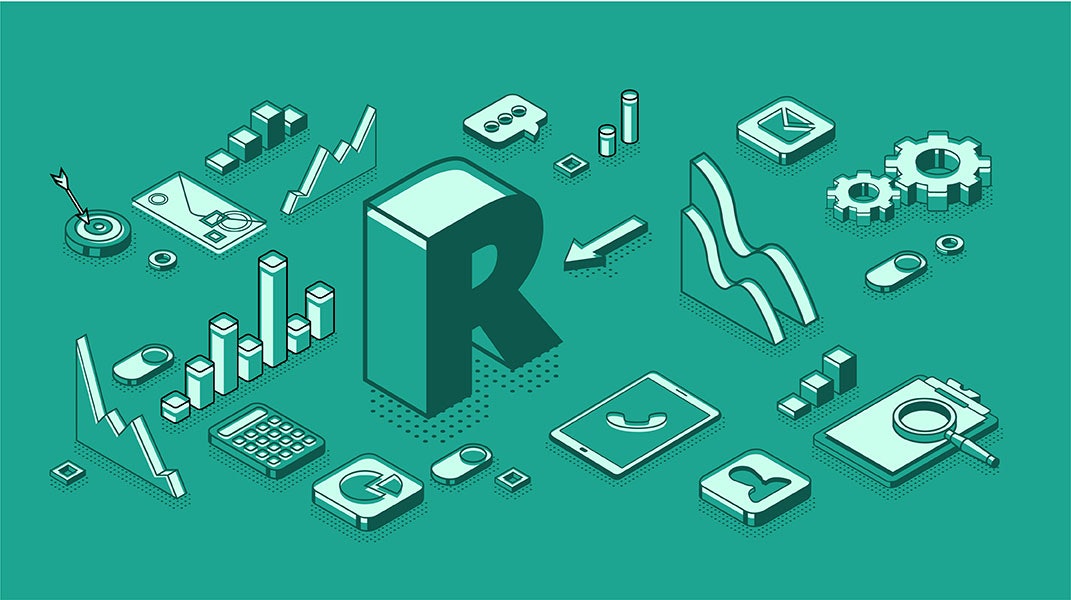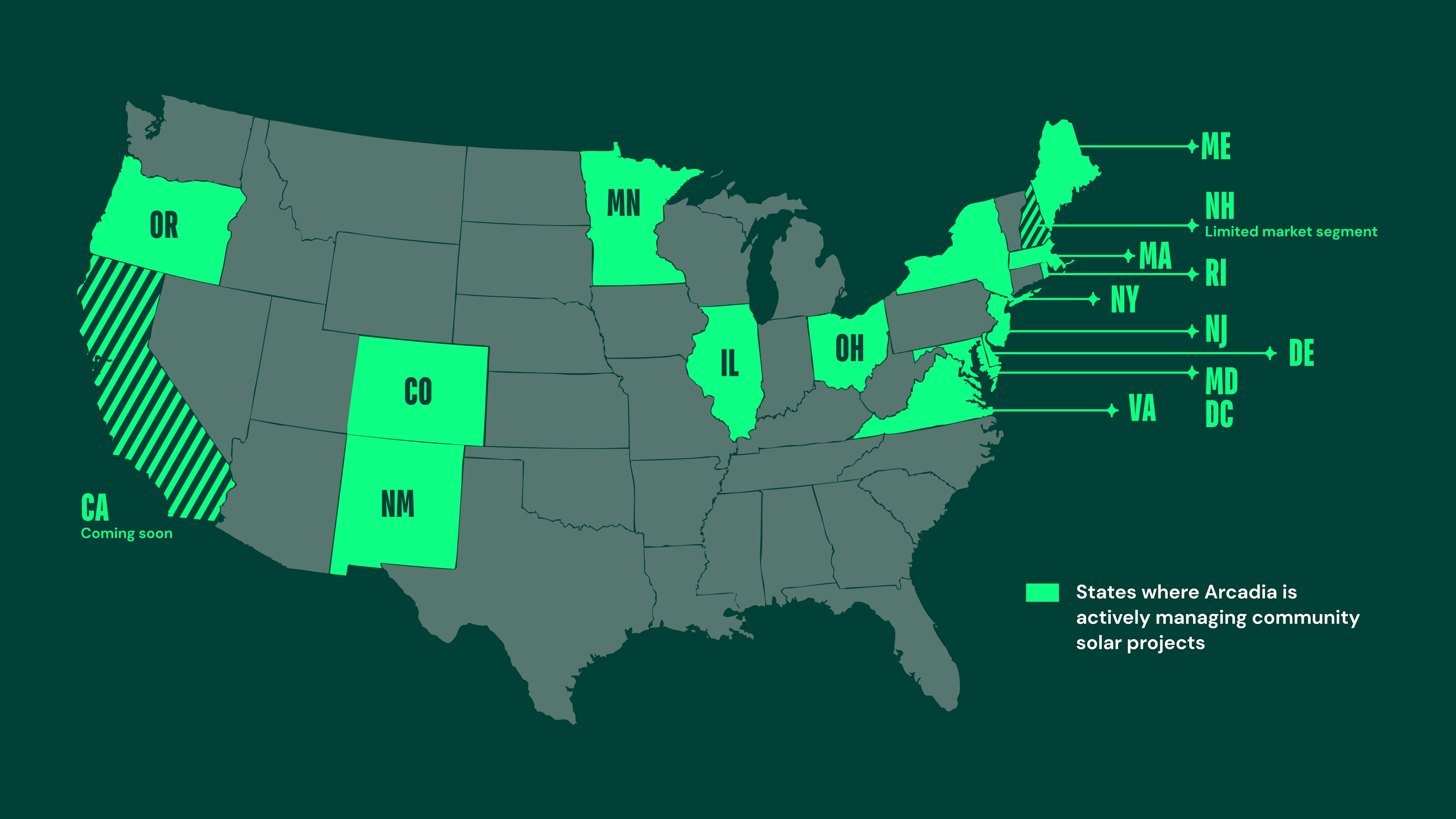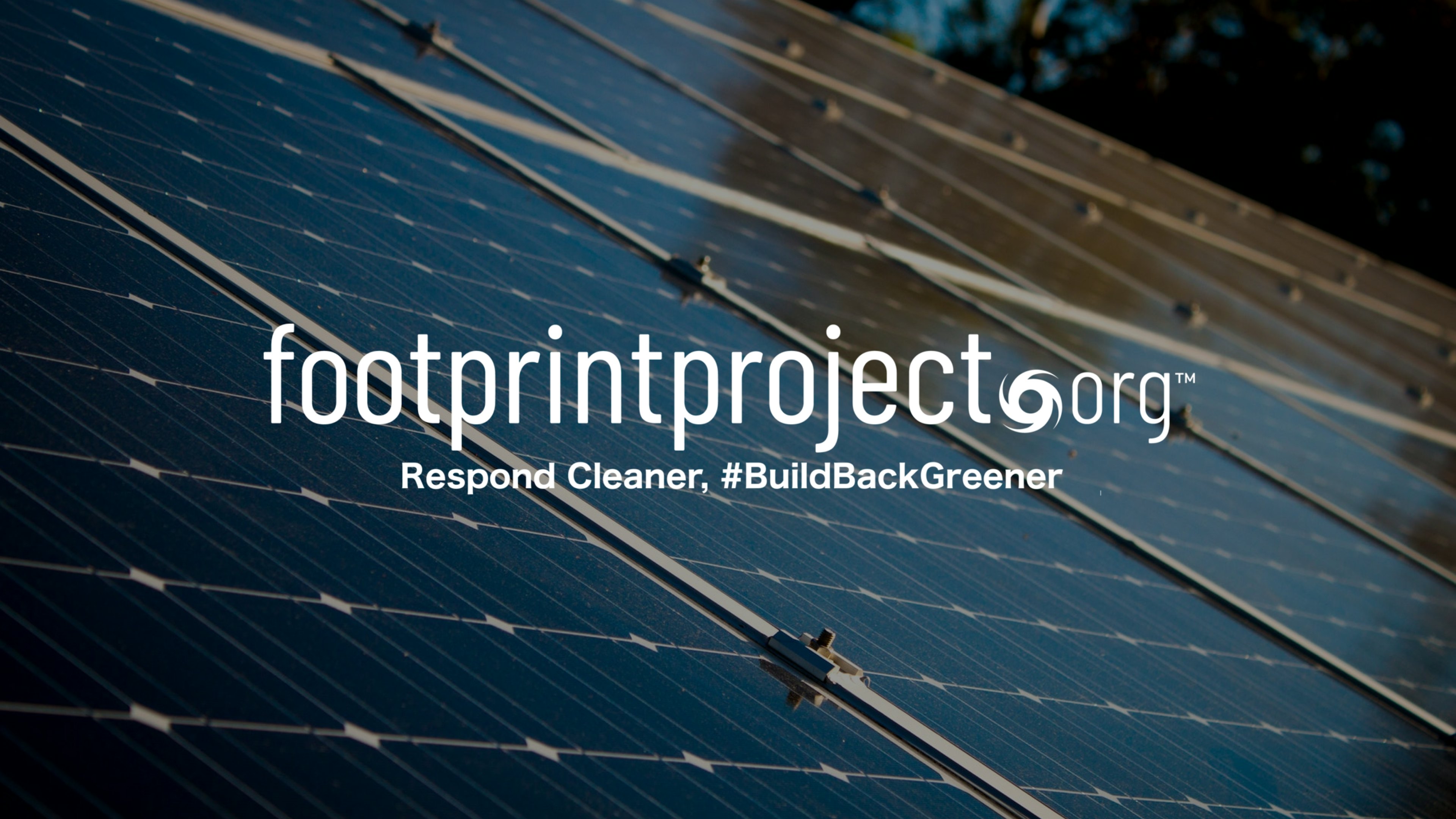Q&A with Danya Murali: Arcadia quantitative analyst and “R-lady”

Arcadia Voices is an interview series highlighting the work, insights, and ideas of those working with Arcadia to build a 100% clean energy future. In this installment, Alexis Juneja sits down with quantitative analyst Danya Murali to discuss what makes data science, diversity, and community building so important to the fight against climate change.
To say that a statistical tool changed the life of Danya Murali is not an exaggeration. She first encountered R when she attended a meet-up as a course requirement while earning her master’s degree in statistics. At the R-Ladies Global meetup in Washington, D.C., she found herself immersed in a supportive, inclusive, diverse group of women and gender minorities who were connected by this intuitive tool that was free for anyone to use and contribute to. At that moment, she knew she’d found her calling.
After graduating, she was working at the U.S. Energy Information Administration, which is the statistical hub of the U.S. Department of Energy, where, using R and other tools, she focused on forecasting U.S. crude oil production. She loved the statistical work, but she didn’t love contributing to the oil industry. She started networking in search of a new job, and in 2018 attended the Washington DC R Conference, which draws data scientists and R enthusiasts.
There, she heard a quantitative analyst from Arcadia speaking about how the company uses data science in its renewable energy work. “I was sitting in the audience, and I was like, oh my goodness, this is the exact job that I want!” says Murali. She approached him, handed him her resume, talked about her love of R and was hired soon after.
Today, in her role as a quantitative analyst with Arcadia and in her personal life, Murali has become an evangelist for R, which, she says, has the power to transform the lives of people. We talked to Murali about what makes R, and the R community, so special to Arcadia and the world in general.
Alexis Juneja: Just what is so special about R?
Danya Murali: R, at its face, is nothing more than a statistical tool. Traditionally, the pathway to get yourself a coding job is software engineering or software programming. You get your computer science degree, you learn to code, and you apply that skill to wherever you end up. And one of the issues that exists within the computer science world in most of the U.S. is that it’s predominantly white and predominantly male. A lot of the existing communities surrounding the basic skill of coding are very exclusive, so it’s hard for a person from an underrepresented group to join the community and feel comfortable.
R was created by statisticians, but instead of it being a type of tool that requires you to have an in-depth knowledge of computer science concepts and how the core of coding works, it’s geared towards people like mathematicians, statisticians, social scientists, people that are not coders. In some ways, it’s a tool that gives people who don’t code or don’t have a strong coding background the ability to code.
And I understand it’s developed this strong community following. Tell me about the R-Ladies, the group that you’re a part of.
R-Ladies is an international meet-up group. The group works to support women and gender minorities when using R in data science. I’m active in the D.C. R-Ladies, and we hold meetups where we’ll talk about new packages or developments or host workshops on how to use certain parts of the tool, or even share expert advice on how to get a career in data science or other related areas.
A recent meet-up topic was salary negotiation. An HR expert shared insights and tools on how to advocate for yourself in the job market. She had us break up into groups and pretend to be on the other side of the negotiating table. It was such a good experience. Simply taking the time to do this for two hours, I personally felt so empowered. I felt like I had so much more knowledge about what the expectation is when you’re in that situation, which is not something that is taught in school.
What are some other things that are special about the community?
One of the things I love most about these R-Ladies meetups is there’s so much diversity in race, background, and age. There are women in all different parts of their career, and they come to learn and to talk to people. At the end of each meetup, women will stand up, and if you’re a hiring manager or if you just happen to be hiring people you’ll say, ‘We’re hiring, if you’re interested in this type of position come talk to me.’
Because R-Ladies is geared towards women and gender minorities (although men are also welcome, as long as they bring another person who is a woman or gender minority), you feel much more comfortable approaching someone to talk about a job. It’s like, ‘I see you and I understand what your experience is like.’
How important are diversity and inclusion in your professional life?
Very important. The nice thing about the data team at Arcadia is in terms of gender diversity, 50% of our team identifies as female. We also have some racial diversity, which is important. When we’re hiring, we’ve seen the power of having diverse backgrounds, both in technical experience and life experience. Both make a big difference in how we approach our work.
For example, one of the projects I’m working on is I’m trying to identify what characteristics influence and individual’s energy usage. In other words, what about a person and their life situation might make them use more or less electricity? Do they live in a big house? Do they live in an older home? Does gender play a role? Income? Education? It’s a really cool problem, but you have to be careful when you’re pulling demographic information to not simply put people in a bucket.
That’s why diversity is so critical to our team. When you have a diverse group of people working together, you can learn from one another's experiences and make sure nothing you’re doing with your analysis could be harmful to a particular community. If you’re all one homogenous group, you’re missing out on that breadth of perspective. Your data is only as powerful as the people that are doing the analysis, and if the people that are doing the analysis have a very narrow view of the world, your analysis will, too. It doesn’t give you the power to understand the world around you.
What do you love most about data analysis and about R?
If you asked me to do one thing that could make the greatest difference or do the most good, I would say being able to analyze data. Because in order to make good decisions about anything, you have to understand the data behind the decision. Data as a basic concept is super powerful, and if you have the tools and the ability to understand it and utilize it, you have so much power to make positive change.
We know climate change is an enormous problem that needs to be addressed. But when you’re an everyday person hearing about the realities of the climate crisis, it can be really scary… people feel at a loss for what to do. By breaking the problem into more manageable pieces that can be analyzed we are able to inform the development of products that not only give control back to everyday households but also inspire hope for a better future. I love that my work analyzing something small can be transformed into a solution that motivates our members to make a difference. R helps us do that.


